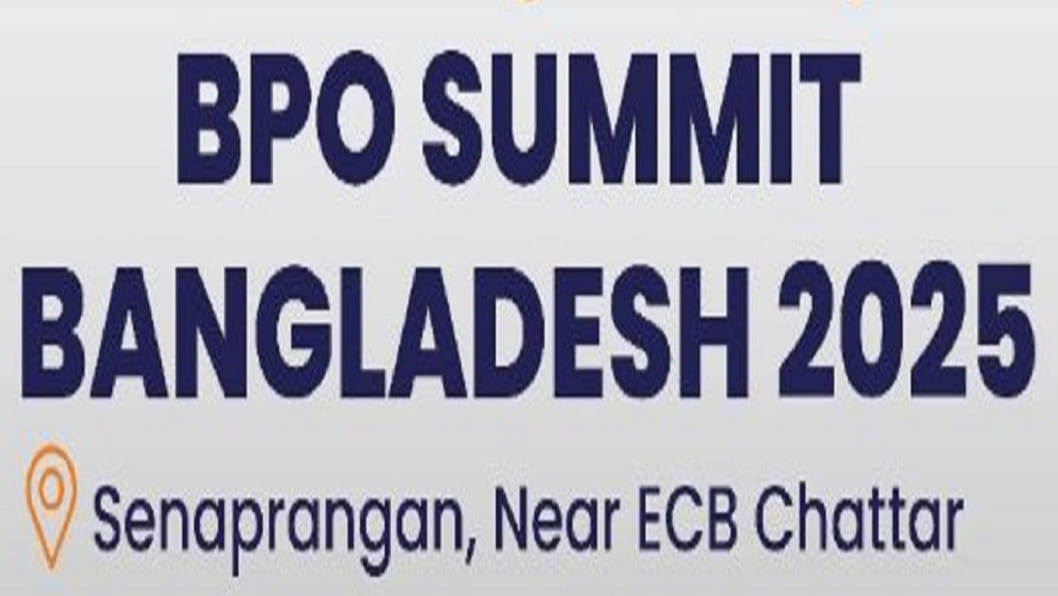Without AI, Bangladesh risks falling behind: experts

If business process outsourcing (BPO) companies in Bangladesh fail to adopt technologies like artificial intelligence, machine learning, and large language models, they will fall behind in global competition, experts warned today.
"Technological advancement in the past two years has surpassed all previous eras of innovation," said Faiz Ahmad Taiyeb, special assistant to the chief adviser with executive authority over the posts, telecommunications and ICT ministry.
"If companies cannot adapt to this transformation, they may shut down within two years… They will be eliminated by default," he said.
"Especially for IT and ITES companies, there is no room to survive without embracing change. This failure will not only harm businesses but also damage the country's competitiveness," he added.
Taiyeb was addressing the inauguration of a two-day BPO Summit Bangladesh 2025 at Senaprangan, Dhaka.
Organised by the Bangladesh Association of Contact Center and Outsourcing (BACCO), the event bore the theme "BPO 2.0: Revolution to Innovation" this year, signalling a shift towards innovation-driven growth in the industry.
Taiyeb urged BPO companies to swiftly assess what peer nations like China, India, Vietnam and the Philippines are doing in AI adoption.
"Only then can you approach the government with informed policy demands," he said.
He emphasised that IT engineers must understand sectoral challenges, as technology now permeates every industry.
"The way Chinese companies are leveraging generative AI and accelerating business process upgrades—if we fail to keep pace, we must identify these gaps and bring them to the government's attention," said Taiyeb.
Bangladesh has set a target to generate $5 billion from IT exports by 2030.
"Sri Lanka, one-tenth our size, has set a similar goal. Yet our current annual export hovers at around $700 million to $800 million. We must double our IT exports every year—this is a shared national challenge," he said.
Taiyeb recommended providing export incentives of 8 percent to 10 percent for frontier technologies like AI, while offering 4 percent to 5 percent for legacy segments.
"This ensures that new tech is prioritised without overburdening the government," he said.
He predicted that legacy call centres would disappear within five years, transforming into AI and large language model (LLM)-powered operations. "This sector must embrace transformation now."
BACCO President Tanvir Ibrahim said, "The BPO Summit is not just an industry event—it is a collective declaration of our confidence, capability and future aspirations. We believe this summit will help empower the youth with technology-driven employment and entrepreneurship opportunities."
Adilur Rahman Khan, adviser to the interim government on industry and housing & public works, attended as chief guest.
"The BPO sector is no longer just about outsourcing—it symbolises human resource development and economic transformation. The government will provide full support for its growth," he said.
ICT Secretary Shish Haider Chowdhury and BACCO Secretary General Faisal Alim also spoke.
This year's summit features nine international seminars and workshops, a job fair, special sessions on entrepreneurship, freelancer platforms, and a large exhibition with domestic and international BPO and tech companies.
Diplomats, tech experts and global buyers are attending.
A major attraction this year is an "Experience Zone", showcasing cutting-edge technologies including Starlink satellite internet, immersive AR and VR simulations themed on the July uprising, advanced drones and submarine technologies, and robotics exhibitions.

 For all latest news, follow The Daily Star's Google News channel.
For all latest news, follow The Daily Star's Google News channel. 



Comments